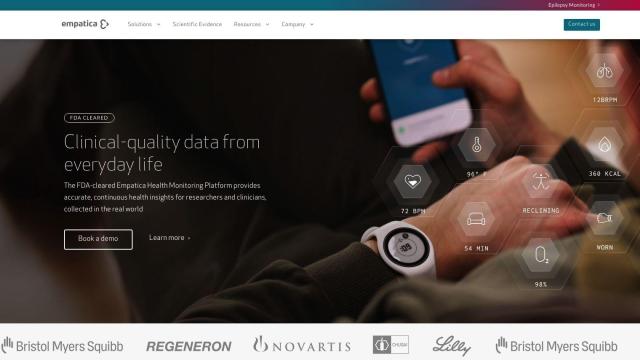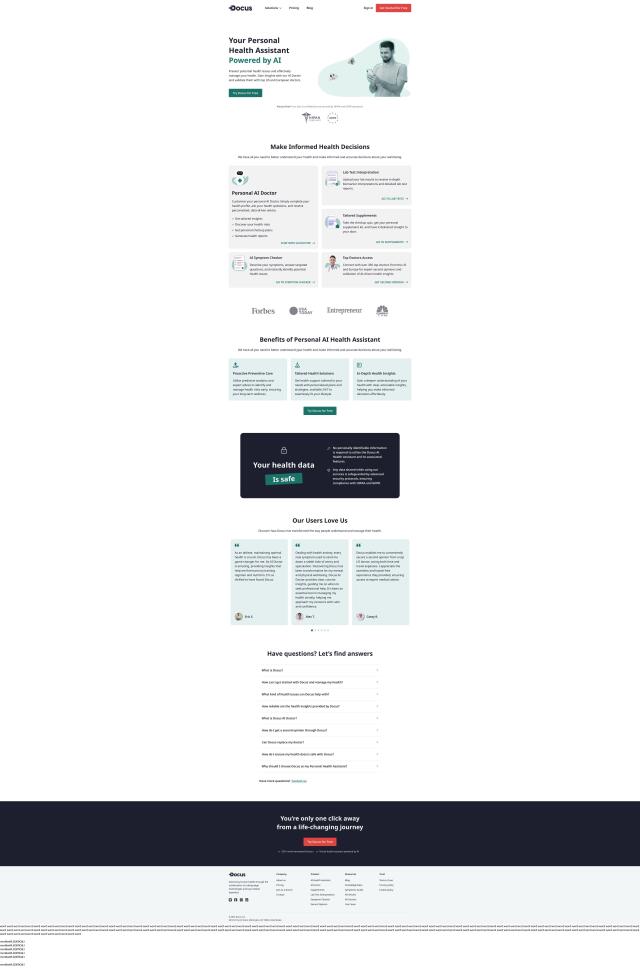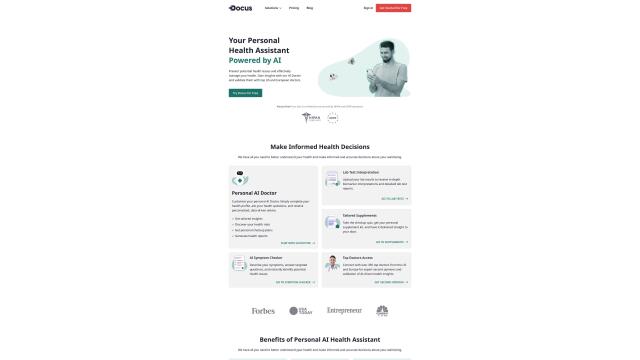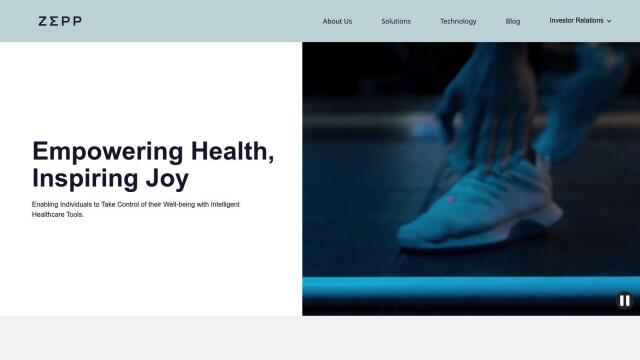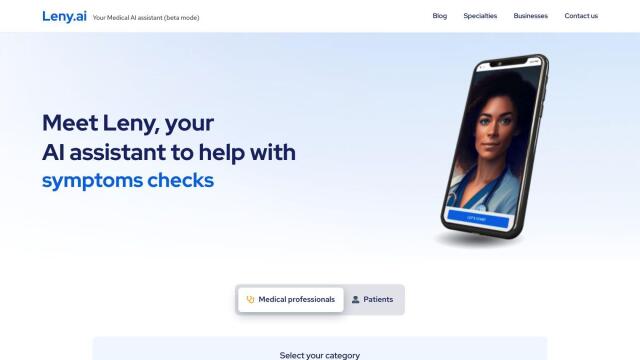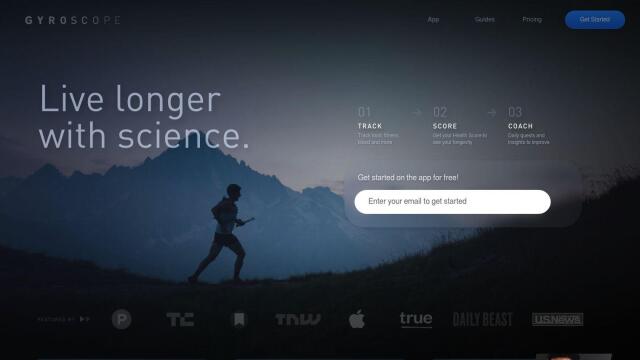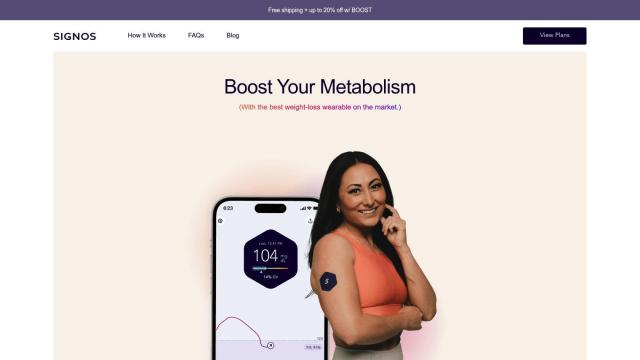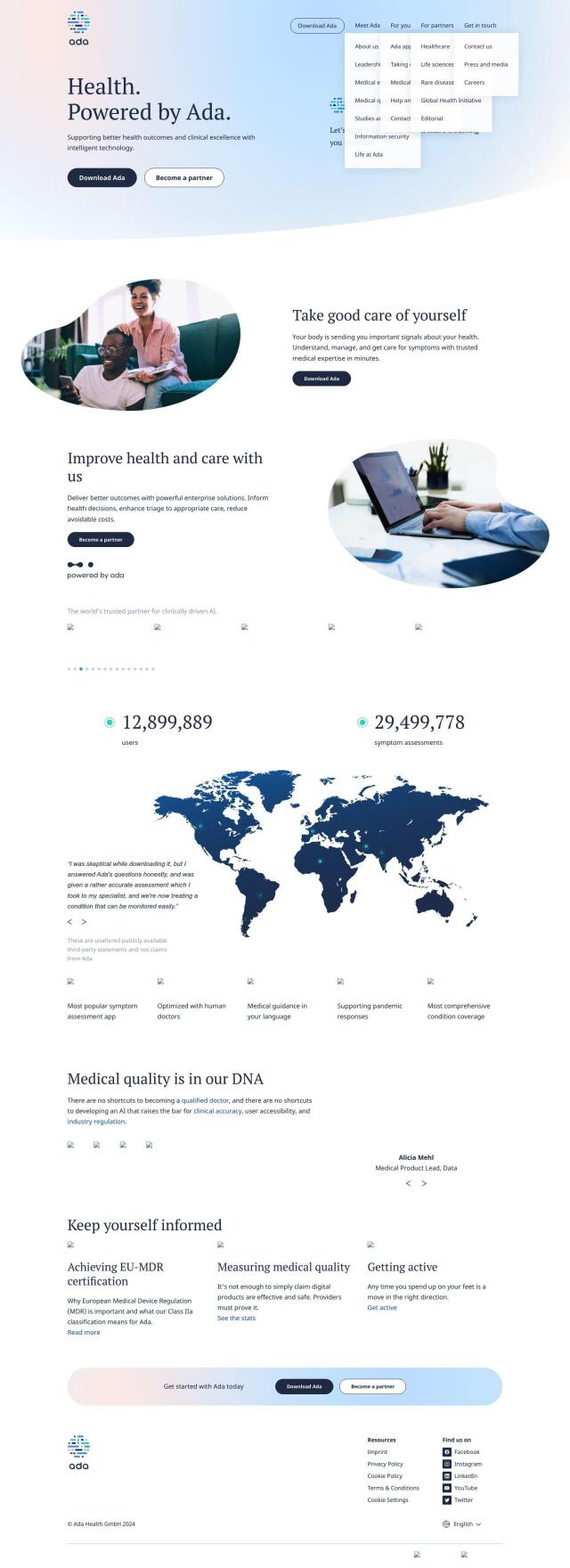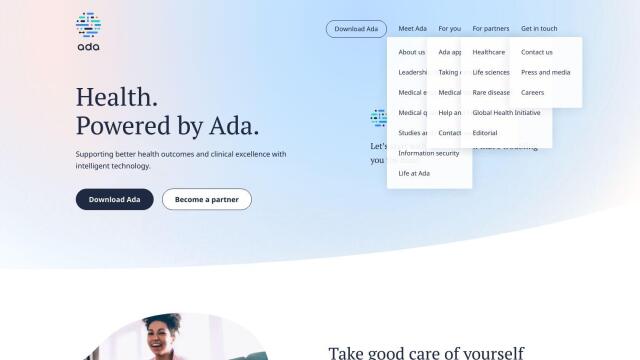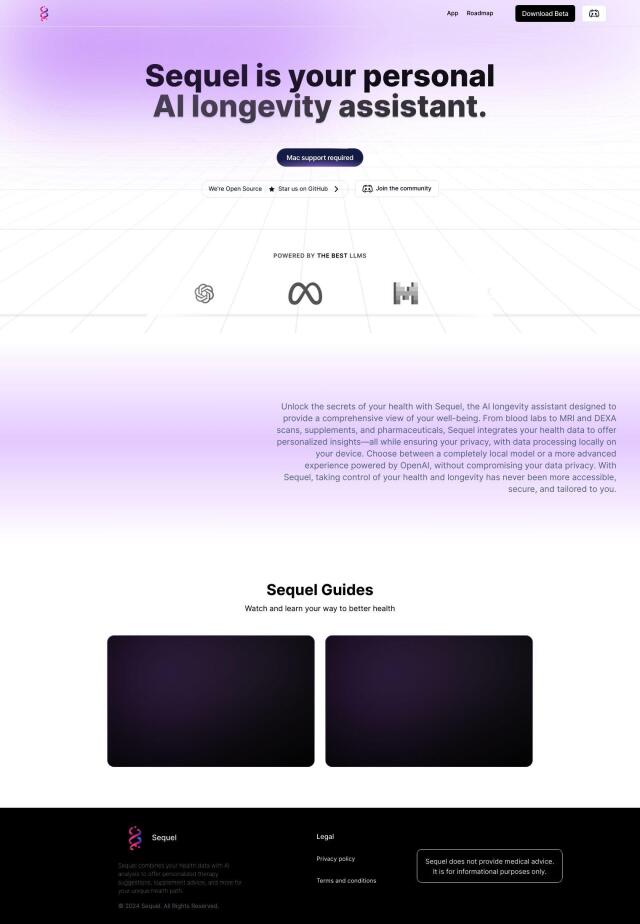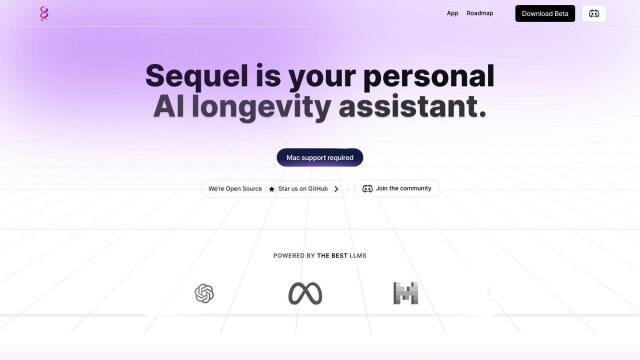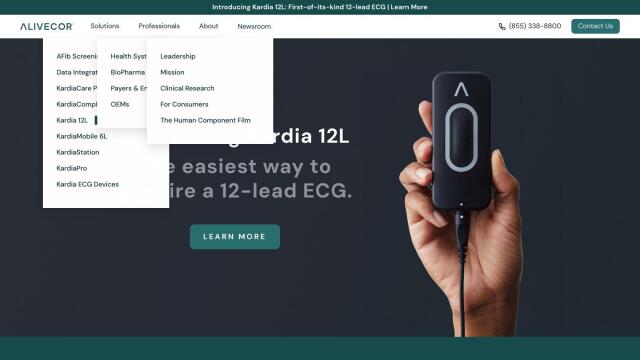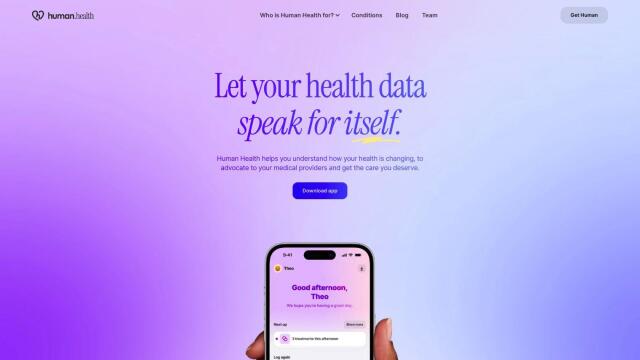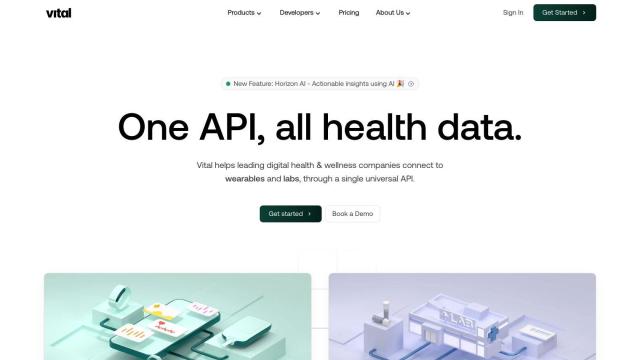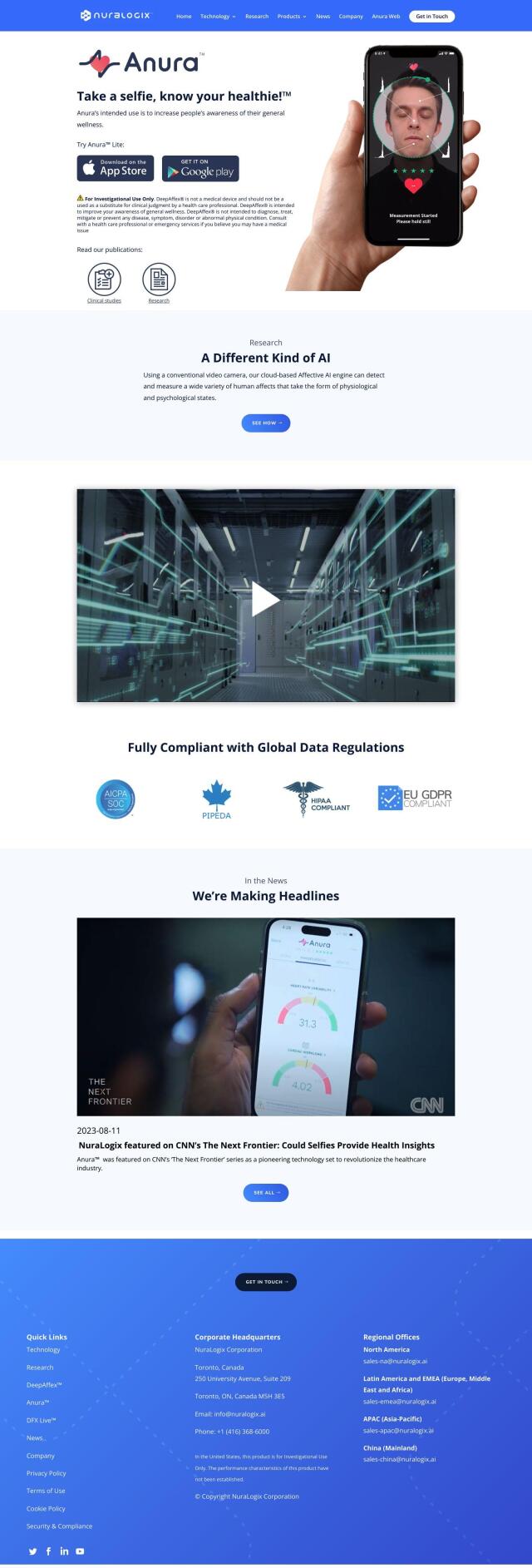
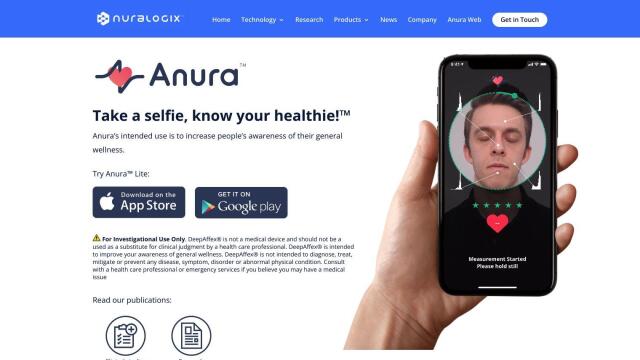
NuraLogix
If you're looking for a competitor to OMRON, NuraLogix could be a good option. The company's AI-based health and wellness products use video cameras to monitor physiological and psychological states. Its technology, DeepAffex, can track vital signs like heart rate, blood pressure and breathing from a 30-second video selfie to assess mental stress, anxiety and depression. That could be useful for monitoring overall health and wellness, similar to OMRON's blood pressure monitors.


Zepp Health
Another contender is Zepp Health, which offers smart healthcare products through next-gen smart wearables and hearables. The devices monitor health 24/7 with biometric sensors and AI chips. The Zepp Digital Health Management Platform offers personalized wellness support and actionable insights, making it a good OMRON alternative for wearable health trackers.


Welltory
Welltory is another contender. It connects to more than 1,200 supported apps and devices to provide a wealth of health information. The platform uses AI to offer personalized advice on stress, energy, sleep and blood pressure so you can make better decisions about your health. That makes it a good option for people who want to track a range of health metrics and get advice.

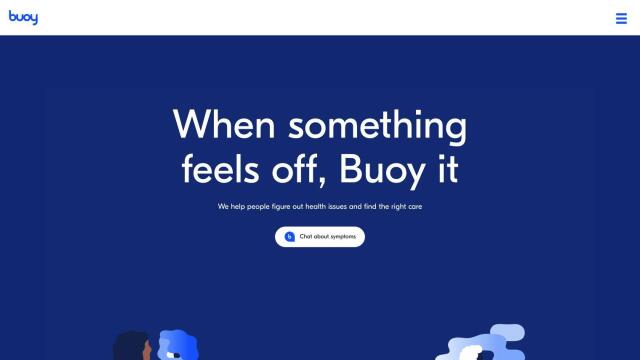
Buoy
If you want AI-powered health advice, Buoy could be a good option. It offers personalized advice about symptoms and possible causes through a conversational interface. By tapping into a large library of medical data from peer-reviewed journals, Buoy hopes to improve health literacy and lead people through care pathways. That could be a good option for privately exploring symptoms and finding recommended treatment options.



